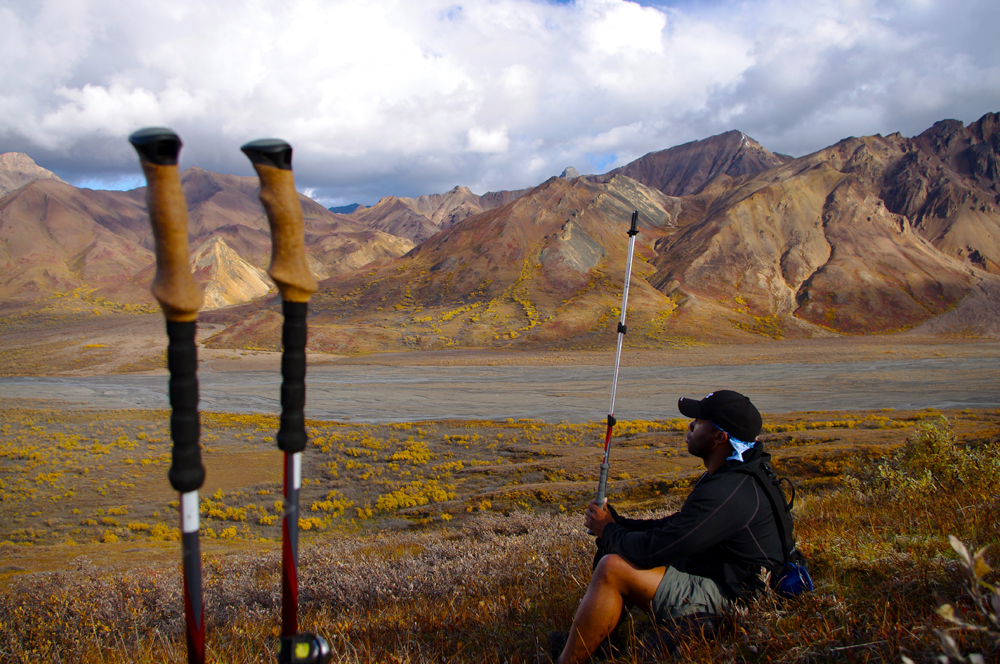Chapter 9: Research and Evidence
9.1 Introduction
Learning Objectives
- Define informed learning
- Identify types of research and evidence
- Locate information using research
- Evaluate information for research
- Apply ethical use of information
The first mention of research can send students running for the exits or on a hike to the nearest Wikipedia page, but this need not be the case. If I asked how familiar you were with finding information, conducting research, or evaluating sources, you would probably say, “Not very.” Although you may not think you engage in research regularly, in fact, you conduct research every day in many ways. Our goal is to boost both your confidence and skills for conducting research so that you know what you need and where to find it for any project you are working on.
Imagine you are planning a trip to Alaska.
What are some of the questions you would ask in order to plan your trip?
- Who is going (family, friends, kids)?
- How will I travel (car, cruise, air)?
- When am I going (season, breaks or vacation months, heavy tourism months)?
- Where am I staying (hotel, bed ‘n breakfast, hostel, friends or family)?
- What will I do while there/ why am I going (work, tourism, history, entertainment)?
Once you have asked the right questions, you begin to use your resources to plan your vacation. Informed learning begins with knowing what questions to ask and where to find the information you’re looking for. We have already asked the right questions, now it is time to consider the location and resources available to answer those questions.
In our Alaska example, you begin by doing online research and locating helpful websites to answer your questions. These websites vary from search sites for articles or comparing different travel hubs including hotels, rentals, airfare, etc. Travel sites may provide seasonal information, historic and educational tourism spots, or popular restaurants and fun activities. The Convention and Visitor Bureau site may provide additional local attractions such as fairs or festivals as well as information about the community. Shopping sites may identify more local treasures by identifying local businesses. Next, you may want to consider speaking with a person who can offer a unique perspective based on knowledge or experience, such as a travel agent. Don’t forget to ask those that may have inspired your trip. Ask friends or family members that have visited or live(ed) your destination for special notes that they would share their travels or recommendations. Lastly, before you leave on your trip, do some footwork. Stop into specialty stores, libraries, and book stores for some written guides on the area or literature and travel essentials to accompany you on your trip.
Our Alaska example demonstrates that you do research every day for personal reasons and professional goals. Now it is time to make the transition from personal research to academic research. First, you need to understand what information to use, how to use it, and why you choose one resource over another. This chapter presents a clear definition of informed learning (learning how to be smart in making informational choices), a designation of types of research and how those types are used to provide support, and clear examples of best practices for ethical choices and to avoid plagiarism.


